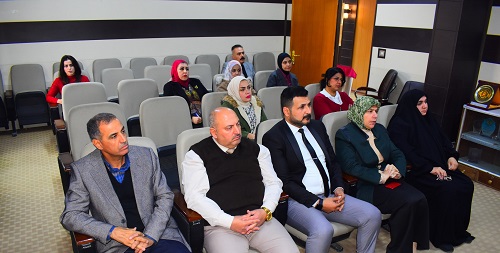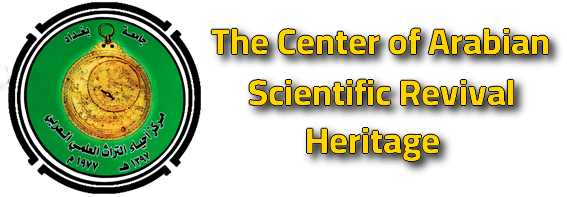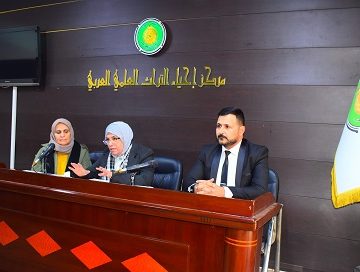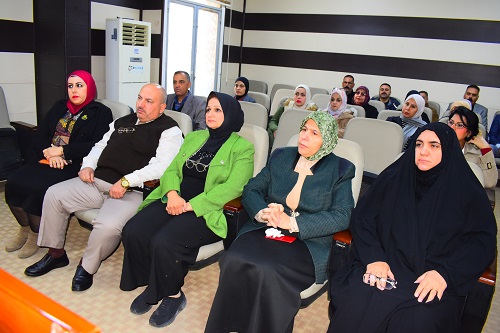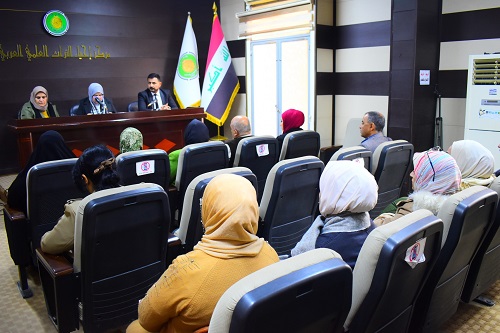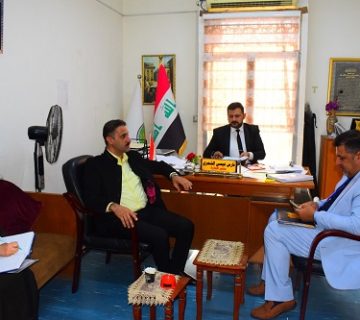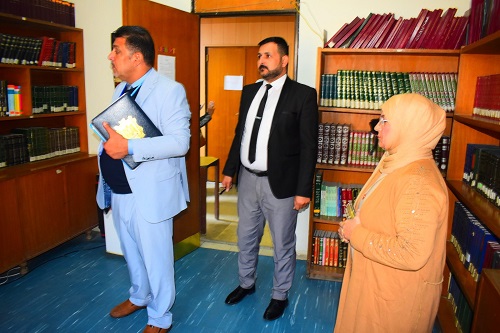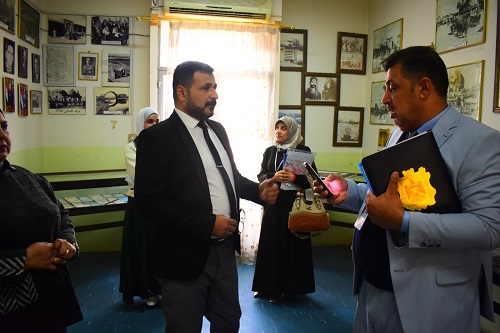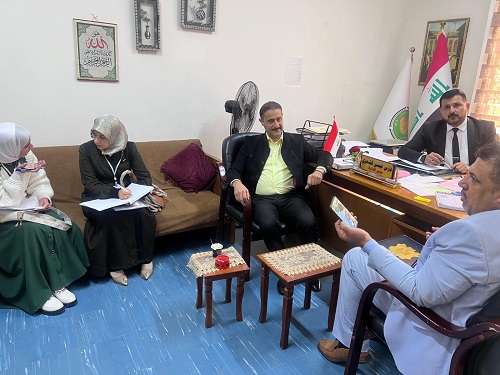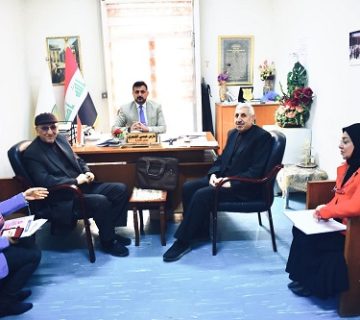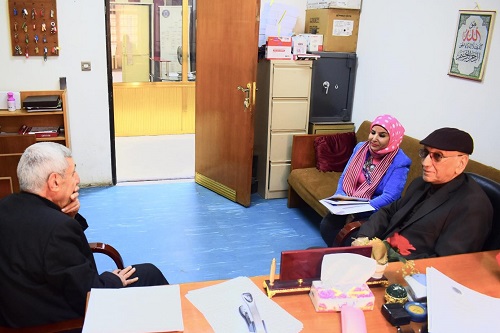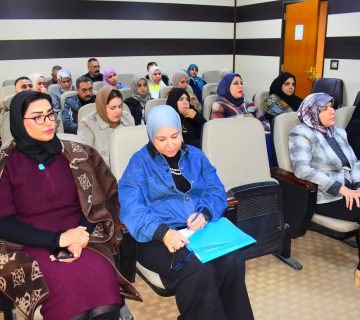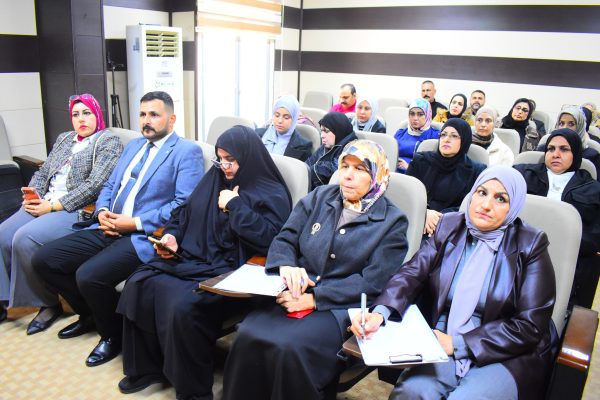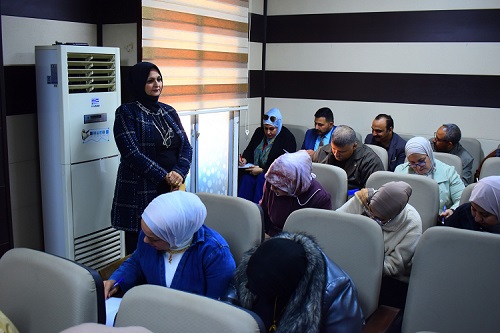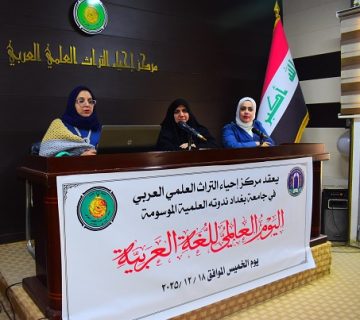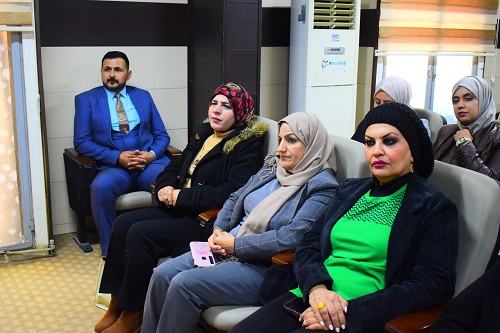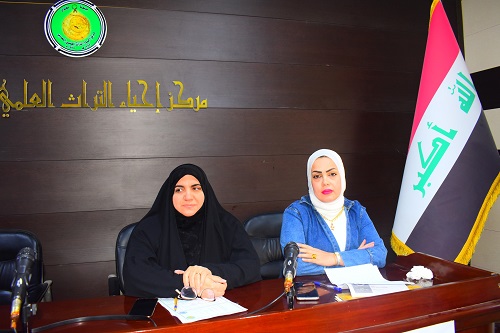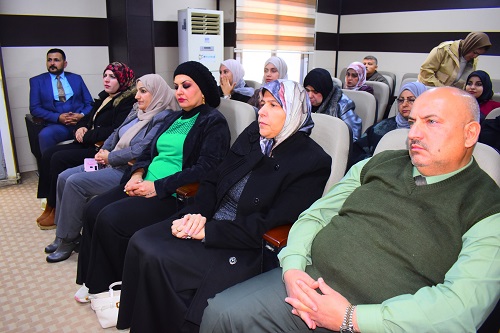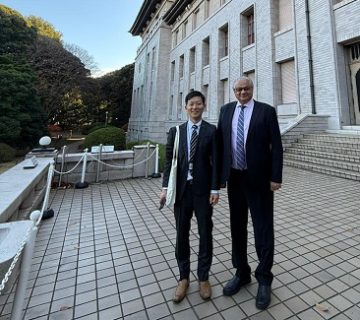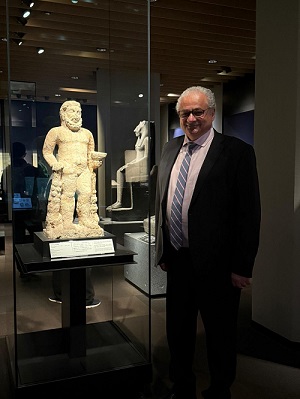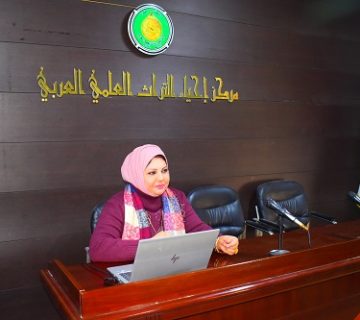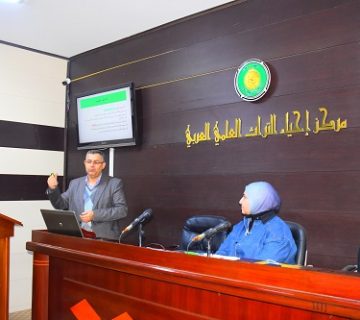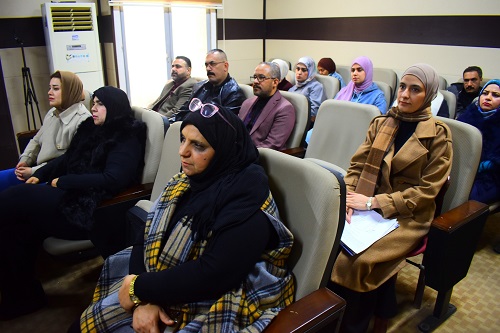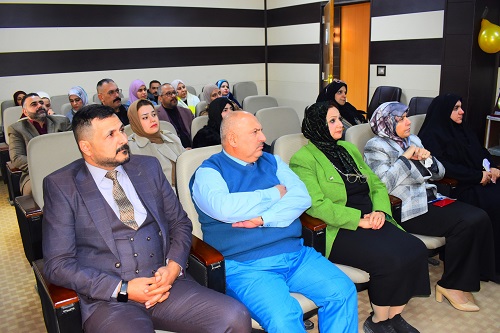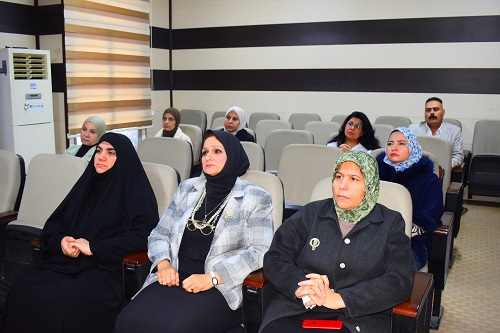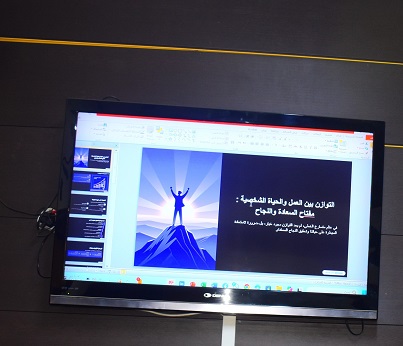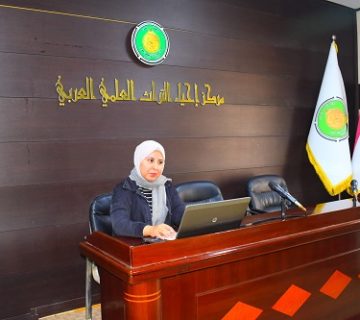
The Center for the Revival of Heritage Organizes a Seminar
The Center for the Revival of Arab Scientific Heritage at the University of Baghdad organized a seminar on the morning of Tuesday, 23 December 2025, at 11:30 a.m., entitled “Social Regulation in Islamic Civilization”, held in Professor Nabila Abdul Moneim Dawood Hall. The seminar was attended by a number of professors and researchers, and the lecture was delivered by Assistant Lecturer Zainab Khalid Mohammed, a faculty member at the Center.
The speaker introduced the concept of social regulation as a key sociological notion, tracing its evolution from the pre-Islamic period through the advent of Islam, and applying it to the contemporary Iraqi society. She explained that in pre-Islamic times, legitimacy was derived from tribal customs, with authority personalized in the hands of tribal elders or alliances, relying on the power of traditional norms. With the arrival of Islam, regulatory authority transitioned to sacred texts (the Qur’an and Hadith), establishing institutional authority that transcended personal and familial ties, creating a fixed reference above individuals and groups. The researcher discussed mechanisms of social regulation in modern Iraqi society, highlighting a mixture of pre-Islamic customs (tribal norms and social pressure) and Islamic principles (religious reference and moral values), alongside laws and regulations enforced by state institutions. She also emphasized the emerging role of social media and digital platforms as significant actors in social regulation. Finally, the speaker proposed strategies to effectively implement social regulation, including the positive use of media and technology through awareness campaigns instead of shaming campaigns, promoting civic and ethical upbringing, and empowering youth by involving them in decision-making processes.
